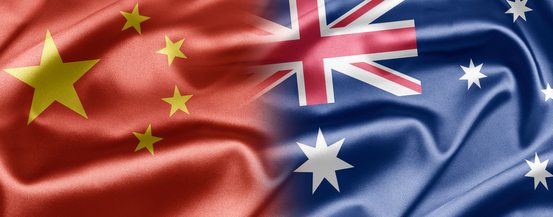China and Australia Formally Sign Free Trade Agreement
China and Australia Formally Sign Free Trade Agreement
Excerpt from: The Guardian| June 22 2015
Deal aims to remove barriers to exports but Australian opposition vows to scrutinise detail on settling disputes China and Australia have signed a trade agreement that is set to increase market access for Australian beef and wine exporters while boosting Chinese carmakers and electronics producers who wish to sell their goods to Australians.
But as ministers from both countries promoted the benefits for industries and consumers, the Australian Labor party and the Greens vowed to scrutinise the yet-to-be-released details to ensure it was a good deal.
One flashpoint is the inclusion of an investor-state dispute settlement (ISDS) clause, which grants foreign companies the right to sue governments for breaching commitments in such agreements. The Australian union movement has also raised concerns about the access to be granted to Chinese citizens under labour market provisions.
Both governments concluded negotiations on the free trade agreement (FTA) in 2014, but it was formally signed in Canberra on Wednesday by Australia’s trade minister, Andrew Robb, and China’s commerce minister, Gao Hucheng.
Gao said it was a “comprehensive, high-quality and balanced agreement” that was a milestone in relations between Australia and China. “It is the highest degree of liberalisation of all the FTAs China has so far signed with any economy,” he said.
The Australian prime minister, Tony Abbott, said the agreement would give each nation “unprecedented access to each other’s markets” and pointed to the reduction in tariffs imposed on trade. “It removes barriers to Australian agricultural exports across a range of products, including beef, dairy, lamb, wine, horticulture and seafood,” he said.
“It means duty-free entry for 99.9% of our resources, energy and manufacturing exports within four years. But it’s about so much more than just exporting more and reducing tariffs. Australian services providers, financial, education, health and aged care will have new access to China’s services sector, a sector that is already the largest contributor to China’s GDP and is set to drive economic growth in coming years.
{Photo Source: Depositphotos.com/ruskpp}
“For China, this agreement liberalises the screening threshold for Chinese private sector investment in Australia and it puts Chinese businesses in the same position as those of our other major trading partners. And of course it means that Australian consumers will pay less for cars, for clothes, for electronics and other goods imported from China.”
The full text of the agreement will be subject to an inquiry by parliament’s joint standing committee on treaties, paving the way for parliament to consider amendments to relevant legislation.
Labor’s Senate leader and trade spokeswoman, Penny Wong, said the party would assess the deal against the test of whether it would increase jobs and economic growth. Labor would look closely at the effect on the Australian labour market. “Labor supports temporary skilled migration to fix skill shortages. That scheme should never be used as a mechanism to bypass local workers and we will certainly be looking at the detail of that,” Wong said.
“And, as I’ve said previously, Labor does not support investor-state dispute settlement clauses in agreements.”
The Greens senator Peter Whish-Wilson said: “Regardless of the supposed marginal economic benefits, the Greens will never support an agreement that makes future governments liable to be sued by foreign corporations simply for making laws that protect the public interest.” The Australian Council of Trade Unions (ACTU) raised concerns that the deal would “make it much easier for employers to bring in Chinese workers without having to advertise jobs to local workers”.
The ACTU’s president, Ged Kearney, said the government appeared “intent on selling out even more local jobs”.
“There must be strong rules around labour market testing and labour mobility clauses in the China free trade deal to ensure local jobs are protected,” she said.
The Electrical Trades Union went further, describing the FTA as “an irreversibly reckless move”.
But the Business Council of Australia’s president, Catherine Livingstone, said the agreement would unlock significant opportunities for two-way trade and “deliver lasting benefits for the whole community”.
The Australian Industry Group’s chief executive, Innes Willox, said industry had long viewed the agreement with Australia’s largest trading partner “with a mixture of optimism and trepidation”.
“As with all trade agreements, the process would have benefited from deeper consultation and a better understanding of the opportunities and the threats before signing,” he said.
